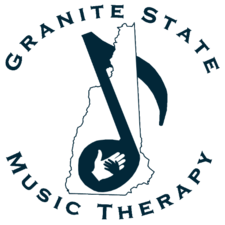Enhancing Speech with a Musical Workout for the Brain
Music is an incredible tool to work on speech and language development in children. It also can be used to restore language skills for an individual who has a neurological disorder. But why? There are many similarities between how speech and language are processed in the brain, and how music is processed in the brain. The OPERA hypothesis goes through the five reasons why music may enhance language learning, and how it could possibly help someone even more than speech alone. In many ways music demands more from the brain, and activates more neurons. For example, the pitch needs to be more precise for music, rather than the spoken word. It also demands more attention and is naturally repetitive. It is rewarding, that’s why it is important that the person uses preferred music for it to be effective, so the person is actively engaged in the activity otherwise the OPERA Hypothesis won’t apply. The OPERA conditions are as follows, overlap, precision, emotion, repetition and attention (Patel, 2011, 2014).
“O” stands for overlap, this is because there are automatically overlapping networks in the brain where music and speech are both processed. This means, the auditory processing of music will also stimulate parts of the brain that need to be activated for speech, which will in turn help develop the skill.
“P” stands for precision, because in many ways music puts more demands on the nervous system than the spoken word does. Instead of some subtle pitch fluctuations that are present in speech, such as your voice going up at the end of a phrase to indicate that you are asking a question, music demands exact pitches to fit into a melody. Even improvisation, which is making up music on the spot, you still have to use certain pitches that fit into the scale being used. This concept is similar to how exercising challenges your body beyond everyday demands, making daily movements easier and more fluid. Music can really challenge the brain, which will prime it for language development and/or rehabilitation.
“E” is for emotion, and that is why in order for all the parts of the OPERA Hypothesis to be effective, one’s heart must be in it. If a child takes music lessons but dislikes what they are learning, neglects to practice throughout the week, and doesn’t pay attention during instruction, the hypothesis will not be applicable. If we are emotionally invested in something, we intrinsically will be more engaged and take in more of the information. Music that is either familiar or novel and intriguing to a person, will engage them and trigger a positive emotional response. Everyone is unique, so a song that may promote positive emotions in one person may make another feel angry or anxious. This highlights the significance of personalized music for each individual.
“R” is for repetition. Music is repetitive in nature. But repetitive speech may quickly become tedious and seem unnatural. In music, there are entire genres based on using a lot of repetition, like 12-bar blues, for example. Repetition is built into the structure of the music. Again, much like exercising, you need to do the motion again and again in order to develop the muscles that you want.
“A” is for attention, which of course is built into the emotional piece. If you are emotionally invested in something, you are paying attention. Music requires individuals to attentively process elements such as pitch, rhythm, timbre, and more, ensuring accurate performance.
Music offers a powerful method to enhance speech and language skills for several reasons. Beyond its inherent enjoyment, which fosters greater dedication and effort, extensive research and studies demonstrate how music stimulates the brain, promoting enhanced language development.
References:
Lee, Y. S., Wilson, M., & Howland , K. M. (2023). Music for Speech Disorders. In Devlin, K., Pantelyat, A. & Kang, K. (Eds.), Music Therapy and Music-Based Interventions in Neurology: Perspectives and research and practice (pp. 9-21). Humana Press.
Allen, S. (2020, October 2). Intime and opera??- setting the stage for change (part 2). Advanced Brain Technologies. https://advancedbrain.com/blog/intime-and-opera-setting-the-stage-for-change-part-2/
Patel AD. Why would Musical Training Benefit the Neural Encoding of Speech? The OPERA Hypothesis. Front Psychol. 2011 Jun 29;2:142. doi: 10.3389/fpsyg.2011.00142. PMID: 21747773; PMCID: PMC3128244.
Author: Jenni Chute, MA, MT-BC
Editor: Cassadi Kulak, MT-BC





